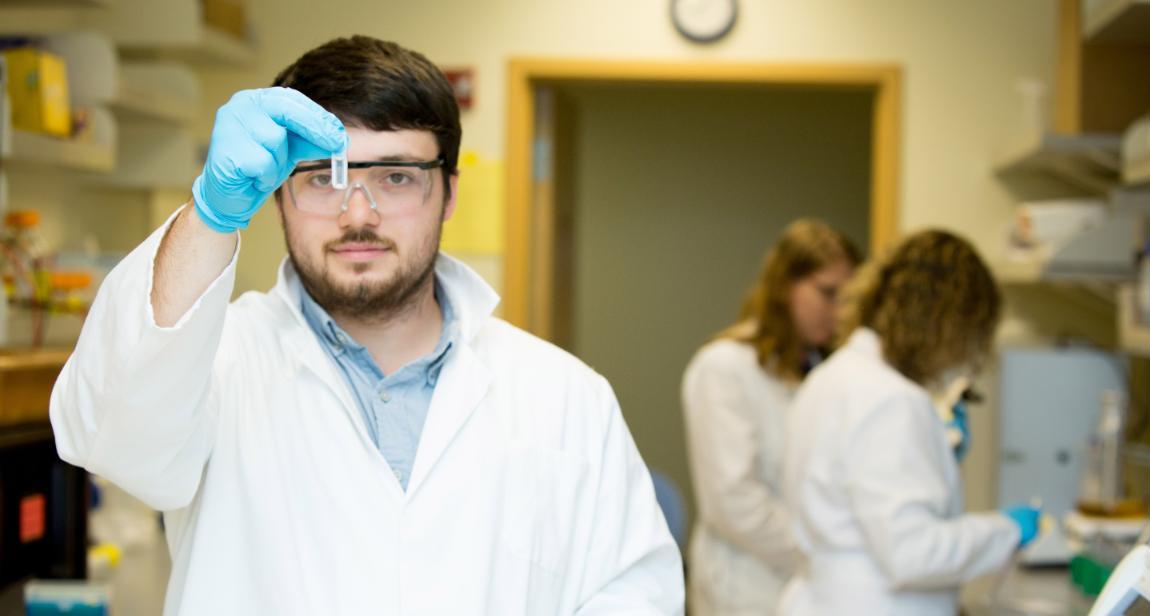What Barry Manchester ’19 and Kaitlyn Myers ’18 are doing this summer has been compared to studying recipes in a cookbook with 30,000 recipes. These recipes, though, are made up not of culinary ingredients but of the genes in human cells.
The biology majors are testing how mutations found in cancer patients’ genes affect interactions between different proteins. They’re growing liquid cultures of E. coli bacteria to make the proteins, purifying the proteins and finally testing the physical interactions of the mutant and normal proteins to determine if the mutations disrupt the normal function of the proteins.
In normal cells, each gene—or recipe—has the information to make a protein that has a specific job to do in the cell. In cancer cells, mutations or changes in a gene can change the way the protein is made, which can disrupt its normal function.
This is related to the courses you take, but in this program you have a lot more time to do research than in class.
Barry Manchester ’19
“They’re focused on parts of proteins known as bromodomains—which are like hands in the proteins that help turn genes on and off— to determine if mutations affect the function of that part of the protein,” said Dr. Erin Shanle, assistant professor of biology, who is overseeing the students’ biochemistry project in the PRISM program. “Many of these bromodomains have not been studied extensively, but we know they are very important in normal cells.”
Manchester and Myers, using a publicly available database with detailed information on more than 500,000 tumors, are working separately on bromodomains from different proteins (hers is CBP; his is BRD3), “changing the proteins based on what they found in the database,” said Shanle. Both students are enjoying their PRISM experience.
“It’s always something interesting,” said Manchester, a Buckingham County native who did research in Shanle’s biochemistry lab this past academic year and plans to be a physician. “This is related to the courses you take, but in this program you have a lot more time to do research than in class. You learn a lot more in-depth material.”
“I like the problem-solving angle the most,” said Myers, from Ashburn, who is interested in microbiology. “I’m really passionate about this research. I’ll be sad when I have to leave Dr. Shanle, who has been a good mentor. If I don’t understand something at first, she walks me through the protocols.”
The mutations that Myers and Manchester identified disrupt the way the bromodomains interact with other proteins in vitro, they have observed, and the next step is to test if the mutations disrupt the protein function in human cells. Both students plan to continue their summer research projects through the coming fall and spring semesters.
Shanle, whose background is molecular biochemistry, did similar research in a postdoctoral fellowship at the University of North Carolina. “We’re working with these proteins in the lab to gain a better understanding of cancer mutations and how they affect protein function,” she said of the PRISM project.
The biggest challenge for the students has been purifying the proteins they’re making. “You have to isolate just one protein out of a protein soup,” said Shanle. “It’s like making vegetable soup and then having to pick out all of the carrots.”



Leave a Comment